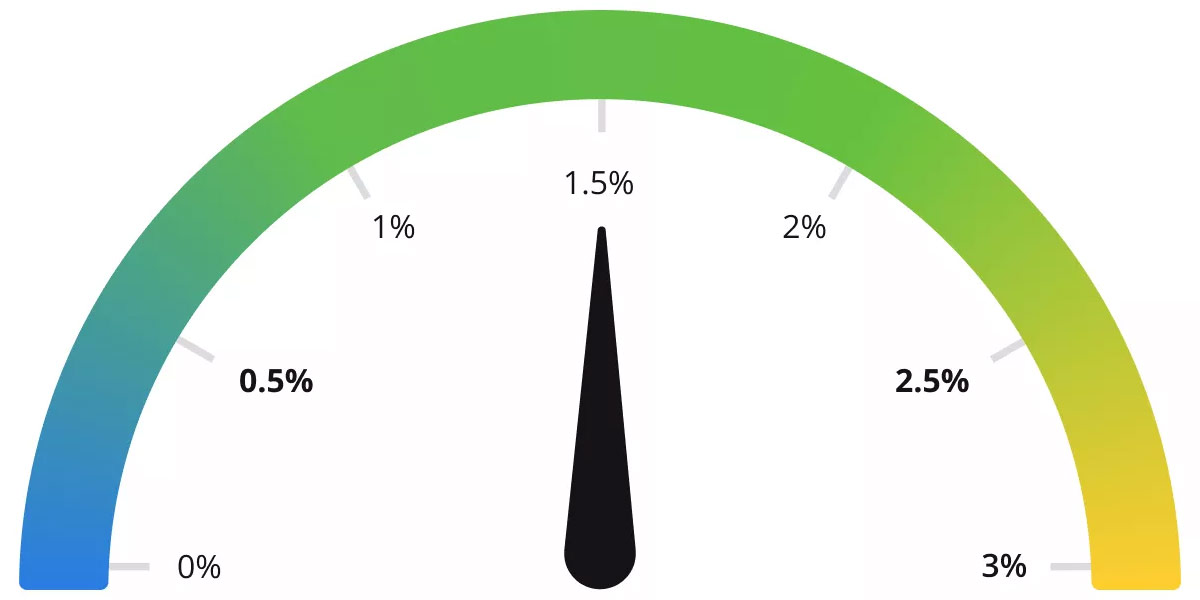Keyword Density: Understanding its Importance in SEO

In the world of search engine optimization (SEO), keywords play a crucial role in determining the visibility and ranking of a website. Keyword density, a term often discussed in SEO circles, refers to the percentage of times a target keyword appears in a piece of content relative to the total number of words. In this article, we will delve into the concept of keyword density, explore its significance in SEO, and provide insights on how to strike the right balance to enhance your website’s online presence.
Keyword Density Introduction
In the vast digital landscape, where countless websites compete for attention, it is essential to implement effective SEO strategies to gain visibility and attract organic traffic. While numerous factors influence search engine rankings, keyword optimization remains a fundamental aspect of any successful SEO campaign.

Keyword Density Introduction
The Basics of Keyword Density
Keyword density is a metric that indicates the proportion of times a particular keyword appears within a given text. It is typically expressed as a percentage, calculated by dividing the number of occurrences of a keyword by the total word count of the content and multiplying by 100.
Why Keyword Density Matters in SEO
Keyword density is vital because search engines utilize this information to understand the relevance of a webpage to a specific search query. By analyzing keyword density, search engines can determine the primary focus of a page’s content and evaluate its suitability for ranking in search results.
Optimal Keyword Density: Finding the Right Balance
Finding the optimal keyword density is crucial for effective SEO. While no universally agreed-upon percentage guarantees top rankings, maintaining a keyword density range of 1% to 3% is generally considered safe and effective. However, it is essential to strike a balance and avoid over-optimization, which can result in penalties from search engines.

Optimal Keyword Density: Finding the Right Balance
Tools for Analyzing Keyword Density
Analyzing keyword density in your content can provide valuable insights into the effectiveness of your SEO efforts. Several tools are available to help you measure and analyze keyword density. Here are a few popular options:
| Tool | Description |
|---|---|
| SEMrush | SEMrush offers a comprehensive suite of SEO tools, including a keyword density checker. It allows you to analyse your content, identify keyword usage and provides recommendations to optimize your keyword strategy. |
| Moz | Moz provides a range of SEO tools, including a keyword explorer and on-page optimization features. With Moz, you can assess keyword density, track rankings, and gain valuable insights to improve your content’s SEO performance. |
| Ahrefs | Ahrefs is known for its robust SEO toolkit. Their Content Explorer tool enables you to analyze keyword density, track backlinks, and gain a deeper understanding of your content’s SEO impact. |
| Yoast SEO Plugin | If you’re using WordPress, the Yoast SEO plugin is a valuable tool for optimizing your content. It provides real-time feedback on keyword usage, and readability, and offers suggestions for improving your overall SEO. |
| Google Search Console | Google Search Console offers valuable insights into your website’s performance in search results. While it doesn’t provide a specific keyword density analysis, it allows you to monitor keyword impressions, and click-through rates, and discover potential keyword opportunities. |
These tools can assist you in assessing keyword density, identifying areas for improvement, and refining your content strategy to achieve better SEO results. Choose the tool that aligns with your specific needs and preferences.
Avoiding Keyword Stuffing: A Pitfall to Watch Out For
Keyword stuffing, the practice of excessively and unnaturally incorporating keywords into content, is an SEO tactic to be avoided. Search engines have become increasingly sophisticated in identifying this practice, and it can lead to penalties or a decrease in rankings. Instead, focus on providing valuable and engaging content to users while strategically integrating keywords naturally and seamlessly.
Writing Quality Content: The Key to SEO Success
While keyword density is important, it should never overshadow the quality of your content. Ultimately, search engines aim to deliver the most relevant and valuable results to users. By creating high-quality content that meets user intent and provides useful information, you can attract and retain visitors, increase engagement metrics, and improve your website’s overall SEO performance.

Writing Quality Content: The Key to SEO Success
The Evolving Landscape of Keyword Optimization
Keyword optimization has evolved significantly over the years. In the past, SEO practitioners would focus solely on specific keywords, often resulting in awkward and repetitive content. However, search engines now consider various factors, such as semantic relevance, user intent, and context, in addition to keyword usage. This shift highlights the importance of creating comprehensive, informative, and user-friendly content that covers topics holistically.
Integrating Keywords Naturally: Best Practices
To optimally incorporate keywords into your content, consider the following best practices:
Research and Identify Relevant Keywords
Thoroughly research and identify keywords that are relevant to your content and align with user search intent. Utilize keyword research tools to discover popular and high-ranking keywords within your niche.
Place Keywords in Strategic Locations
Strategically place your target keywords in essential locations, such as the page title, meta description, headings, and the first paragraph. Distribute them naturally throughout the content while maintaining readability and coherence.
Use Synonyms and Variations
Incorporate synonyms, variations, and related terms of your target keywords to enhance the semantic relevance of your content. This approach not only helps to avoid keyword repetition but also caters to a wider range of user queries.
Focus on User Intent
Prioritize understanding and fulfil user intent. Create content that comprehensively answers their queries, provides valuable information, and addresses their needs. By focusing on user satisfaction, you can indirectly improve keyword relevance and density.

Integrating Keywords Naturally: Best Practices
User Experience and SEO: A Symbiotic Relationship
User experience (UX) and SEO are closely intertwined. Search engines aim to provide users with the best possible experience by delivering relevant and user-friendly content. Therefore, creating a seamless and engaging user experience, such as fast page loading speed, easy navigation, and mobile responsiveness, positively impacts SEO performance and indirectly influences keyword density.
Long-Tail Keywords: A Valuable Addition to Your SEO Strategy
Incorporating long-tail keywords into your SEO strategy can be highly beneficial. Long-tail keywords are longer and more specific keyword phrases that target niche or specific search queries. They often have lower competition and higher conversion rates. By including long-tail keywords in your content, you can increase keyword diversity and capture highly targeted organic traffic.
The Role of Latent Semantic Indexing (LSI) Keywords
LSI keywords are conceptually related terms to your target keywords. Search engines use LSI keywords to understand the context and relevance of your content better. Integrating LSI keywords naturally within your content can help search engines grasp the overall topic and theme, improving keyword density and content comprehension.

The Role of Latent Semantic Indexing (LSI) Keywords
The Impact of Voice Search on Keyword Usage
With the rise of voice assistants and voice search, keyword usage has evolved. Voice queries tend to be more conversational and longer, reflecting natural language patterns. As a result, incorporating long-tail and natural language keywords becomes crucial. By understanding the voice search behaviour of your target audience, you can adapt your content to align with their search queries and improve keyword density.
Mobile Optimization and its Influence on Keyword Density
Mobile optimization has become paramount in the digital landscape. As the majority of online searches now occur on mobile devices, search engines prioritize mobile-friendly websites. When optimizing for mobile, consider the limited screen space and ensure your content is concise, well-structured, and easily readable. Mobile-focused keyword research and optimization can help improve keyword density and visibility for mobile users.

Mobile Optimization and its Influence on Keyword Density
Conclusion
Keyword density remains an essential aspect of SEO, but it should never overshadow the user experience or the quality of your content. Strive to strike a balance by conducting thorough keyword research, integrating keywords naturally, and focusing on user intent. Remember that search engines are continuously evolving, and their algorithms are designed to prioritize content that is valuable, relevant, and user-friendly.
FAQs
What is keyword density?
Keyword density refers to the percentage of times a specific keyword appears within a piece of content relative to the total number of words. It helps search engines understand the focus and relevance of a webpage’s content to specific search queries.
What is a good keyword density?
While there is no universally agreed-upon number, a keyword density range of 1% to 3% is generally considered safe and effective. However, it is important to prioritise user experience and the natural integration of keywords rather than focusing solely on density.
How does keyword density affect SEO?
Keyword density is a contributing factor to SEO. It helps search engines determine the relevance of a web page’s content to specific search queries. However, search engines consider multiple other factors, such as content quality, relevance, backlinks, user experience, and more, in their ranking algorithms.
Is there an ideal keyword density percentage?
There is no fixed ideal keyword density percentage. It is more important to focus on creating valuable and engaging content for users. Keyword density should be used as a guideline rather than a rigid rule.
How can I calculate keyword density in my content?
To calculate keyword density, divide the number of times a keyword appears in your content by the total number of words and multiply by 100. Various online tools and plugins are available to help with this calculation.
What are the risks of keyword stuffing?
Keyword stuffing, the practice of excessively and unnaturally incorporating keywords into content, can have negative consequences. Search engines penalise keyword stuffing, and it can lead to a decrease in rankings or even removal from search results. Instead, focus on providing valuable content that caters to user needs.
Should I prioritize keyword density over content quality?
No, prioritising keyword density over content quality is not recommended. While keyword density is important, it should never overshadow the quality of your content. Creating high-quality, informative, and engaging content that meets user needs is key to SEO success.
Does keyword density impact search engine rankings?
Keyword density is a contributing factor to search engine rankings, but it is not the only factor. Search engines consider various other elements, such as content relevance, backlinks, user experience, and social signals, when determining rankings.
Are there any recommended keyword density tools or software?
There are several keyword density analysis tools available online. Some popular options include SEMrush, Moz, Ahrefs, and Yoast SEO plugin. These tools can help you analyse keyword density in your content and provide valuable insights.
How can I optimize keyword density without compromising readability?
To optimize keyword density without compromising readability, focus on the natural integration of keywords. Use synonyms, variations, and related terms of your target keywords. Prioritise user experience and create content that flows organically while incorporating keywords strategically.

